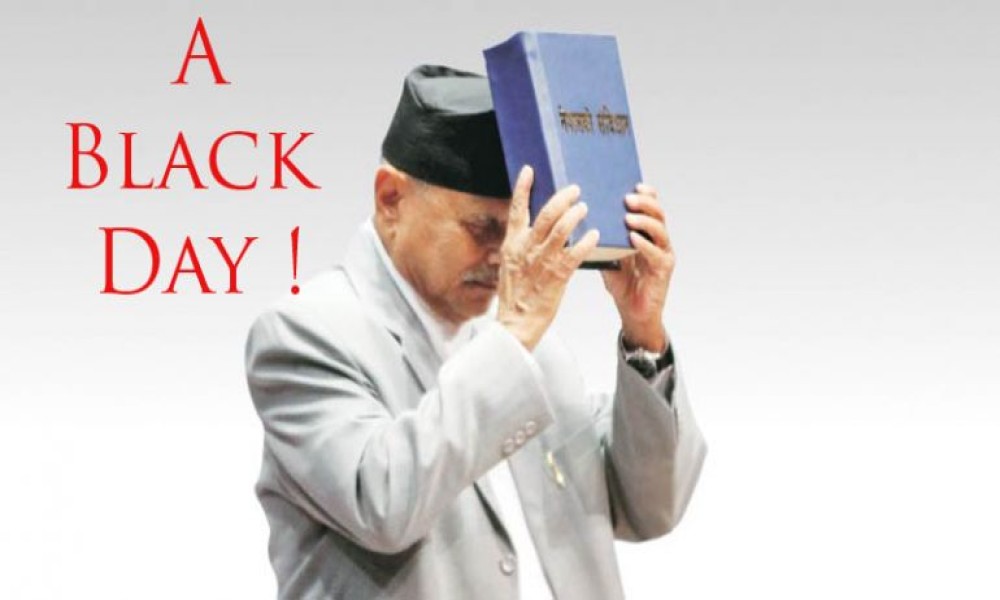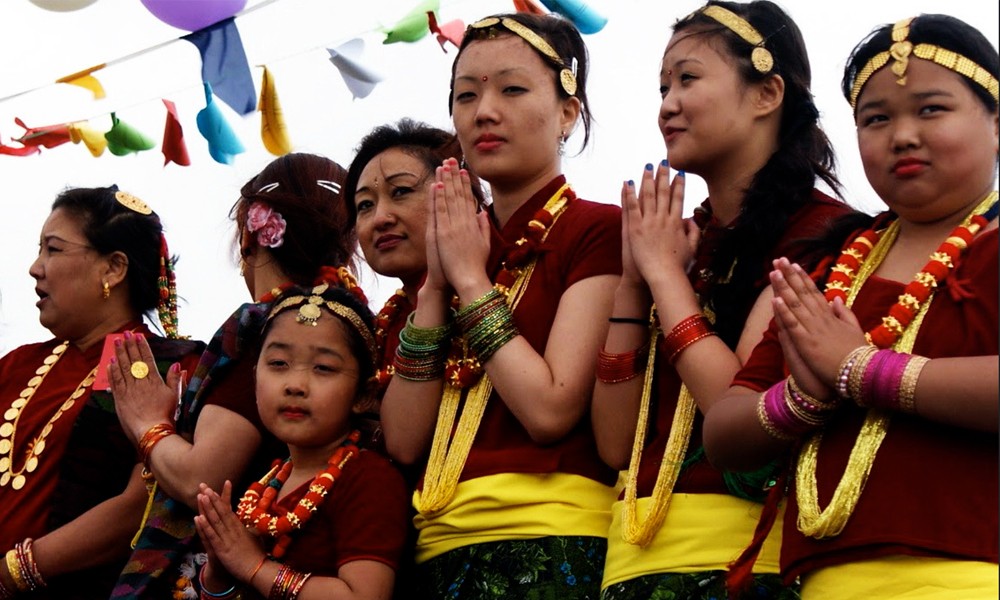Why Indigenous Peoples observed Black Day when the government celebrated the first anniversary of the Constitution ?
Editorial
Today is the first anniversary of the promulgation of Nepal's new Constitution. The government organised a grand ceremony at the Khula Manch of Kathmandu to celebrate the first Constitution day. President Bidya Bhandari, Prime Minister Pushpa Kamal Dahal, Speaker of Parliament Onsari Gharti Magar, Chief Justice Sushila Karki and other dignitaries were present at the ceremony.
But today is also the first Black Day observed by Madhesis in the Tarai, Tharus in the western plains region and Janajatis in the hills. When the Constitution was promulgated by the then-President Ram Baran Yadav last year, Madhes was burning, and Tharus and Indigenous Peoples were also agitated. But lamps were lit in Kathmandu to celebrate the Constitution promulgation, but Madhesi and Janajatis observed Black Out in their regions. A Madhesi protester was shot dead that day, and the death toll from violence over the Constitution climbed to 56.
When the Constitution was promulgated by the then-President Ram Baran Yadav last year, Madhes was burning, and Tharus and Janajatis were also agitated. But lamps were lit in Kathmandu to celebrate the Constitution promulgation, but Madhesi and Janajatis observed Black Out in their regions.
In the past one year, major parties that pushed through the Constitution despite stiff resistance from minority ethnic groups did little to mainstream the excluded. And its result is getting clearer: peace, stability and prosperity – the objectives of the charter – are still chimera.
Indigenous Peoples (Indigenous Nationalities/Janajatis), systematically marginalised by the state, have fought for rights to self-determination. The Maoists promised them autonomous provinces based on their ethnic identities. But when they entered the Constituent Assembly, they compromised on the promise they made. And they agreed with other parties to carve out federal provinces in a way that they will function just like administrative units, not as autonomous states.
Nepal has ratified international conventions which require it to ensure Indigenous People's preemptive rights over their lands and local natural resources. Their Free, Prior and Informed Consent must be secured before carrying out any development activities that could possibly affect their lives, livelihood, culture and identity. But the Constitution did not address this issue.
The government has agreed in the past to recognise the ILO Convention 169 and the UN Declaration on the Rights of Indigenous People in the Constitution. But the parties ignored the agreements signed between the government and Indigenous People. In terms of inclusion and proportional representation, Nepal's Constitution 2015 is not as progressive as the Interim Constitution 2007.
The government has agreed in the past to recognise the ILO Convention 169 and the UN Declaration on the Rights of Indigenous People in the Constitution. But the parties ignored the agreements signed between the government and Indigenous People. In terms of inclusion and proportional representation, Nepal's Constitution 2015 is not as progressive as the Interim Constitution 2007. It also failed to carry on some progressive elements from the draft prepared by the first Constituent Assembly.
Madhesi, Janajati and other ethnic minorities have demanding an amendment to make the new Constitution more acceptable. We have spent so many years in passing one constitution. We must not force the country into another conflict by foiling this Constitution. But this Constitution will fail any way if not amended to address grievances of a sizeable population of Nepalis.
The UML that was at the helm of the Constitution drafting process has refused to amend the Constitution, saying it is India's agenda. But it should understand that India may have pushed for it, but it is very much a people's agenda. One of the reasons for instability in Nepal is that those who are in power tend to ignore or crush dissenters. That is what the Panchayat did to pro-democracy parties for 30 years. That is what the post-1990 democratic governments did to the Maoists for 10 years. Now the Maoists and other parties are doing the same to Madhesi and Janajatis. It eventually leads the country to another conflict, which our fledgling democracy and stagnant economy will not be able to overcome. We cannot keep experimenting with new Constitution every 10 years. So the parties need to act wisely, allowing Madhesi and Janajatis a fair share in the system by making the Constitution work through amendments.









